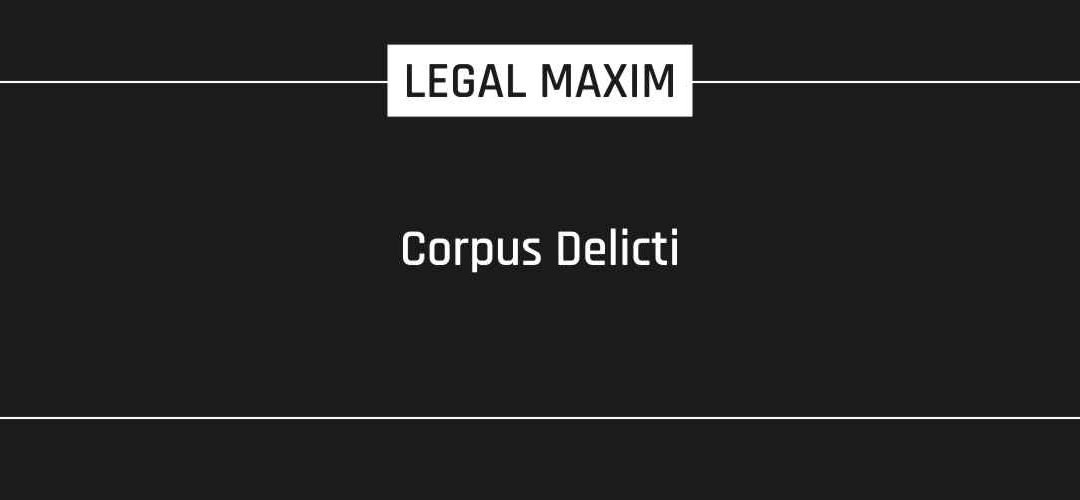Literal Meaning
Body of the crime
Origin
Latin
Explanation
The maxim corpus delicti refers that a person cannot be put on trial for a crime, unless it has been proven that the crime happened. In simple terms, the prosecution has to demonstrate that something bad happened as a result of a law having been violated, and that the defendant was the one who violated it. In criminal cases, the maxim refers that there should be enough evidence to prove that a crime occurred in order to charge an individual for the offense. The doctrine has been established to prevent individuals from being charged with an offense that they didn’t commit.
Illustration
- A believes that his neighbor, B, stole his bike from his backyard. He makes a police report but acknowledges that he has no proof that B took it, but claims that B has always desired a bike like that of A and that he must have taken it. In order to prosecute B for the crime of theft, there must be proof that A’s bike was stolen, and that B stole it. Thus, the maxim corpus delicti applies to prove whether B is innocent of guilty of theft.
- A appears at the police station and confesses to having killed B, but nobody has reported that B is missing, and there is no body of B. A cannot be charged with murder, until and unless B’s body has been found.
Case Laws
In Sevaka Perumal, Etc vs the State of Tamil Nadu, the Supreme Court held that “In a trial for murder it is not an absolute necessity or an essential ingredient to establish corpus delicti. Corpus delicti in some cases may not be possible to be traced or recovered. If recovery of the dead body is an absolute necessity to convict an accused, in many a case the accused would manage to see that the dead body is destroyed etc. and that would afford a complete immunity to the guilty from being punished and the accused would escape even when the offense of murder is proved.”
A similar issue was raised by the Delhi High Court in Urmila vs The State of NCT Of Delhi.
